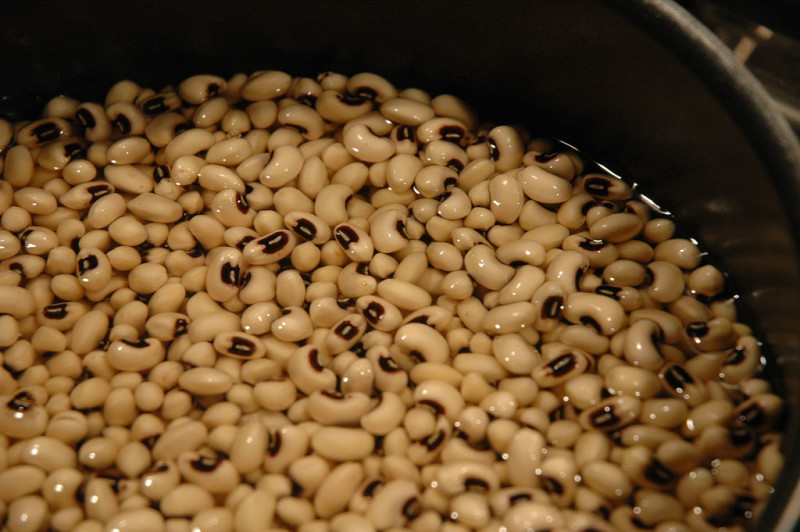This story originally appeared on Marfa Public Radio.
Last New Year’s Day, in 2015, Belinda Kinzie, at her market in Fort Davis, is selling cups of soup called Hoppin’ John. “Blackeyed peas, rice, sometimes turnip greens, and some kind of pork, like ham, sausage, bacon.” Because in Texas and across the South it’s considered good luck to eat black-eyed peas on January 1st. “If you eat as a poor man on the first day of year, you’ll eat rich for the rest of the year.”
In the border town of Terlingua, they’re celebrating the 26th annual Black Eyed Pea-Off. In 1990 Pam Ware launched the event, with musician Tommy Hancock.
According to Ware: “And we took turns stirring each other’s pots, so nobody knew who was whose. You had to pay a dollar to vote. And we counted each stack – pot A and pot B – and it was a tie. Tommy took his $39 and I took my $39. And that was the first Black-Eyed Pea-Off.”
Last year, in 2015, it rained during the Pea-Off, but it didn’t cause Ware to miss out: “Never in my life. I was raised by a Southern woman. There was black-eyed peas in my life every January 1st. Maybe I have more peas than most.”
Mary Ann Brescia is the same way. She lives in Odessa, but is from Columbus Georgia: “It’s something I grew up with. It was just a tradition that was not questioned.”
Historian Lonn Taylor of Fort Davis isn’t sure why black-eyed peas are associated with good luck. “Well, I really can’t answer that. Nearly every culture has a tradition of eating a sort of ceremonial meal of poor people’s food. You know, in Mexico, making tamales is a big Christmas event. In Germany and in Europe, people eat herring and potatoes or goose-blood soup and pig ears or something like that. And black-eyed peas and cornbread were at the very bottom of the food chain in the South. Before the Civil War, black-eyed peas were regarded as slaves’ food.”
As a young bachelor living on his own, he’d sometimes make the meal. One Sunday night, his father asked him what he was doing. “’Dad actually I’m fixing myself some supper. Oh what are you fixing? I said I’m making black-eyed peas and corn bread.’ And there was this long pause. My father says, ‘You know I worked all my life, so my family wouldn’t have to eat black-eyed peas and cornbread.’”
In Marfa, attorney Dick DeGuerin looks out onto his backyard, where he enjoys the tradition with friends, around the fire, every year. “I think I’ve been eating black eyed peas since I was…in diapers. My dad was from East Texas and he always had black-eyed peas on New Year’s Day. Some people say it’s a superstition. And I’m not superstitious…but I don’t believe in taking foolish chances either.”
As his friends move toward the fire to warm up, they fix themselves a bowl, just in case.














